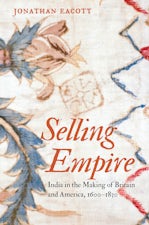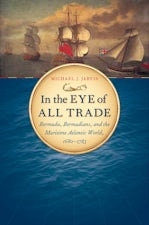Underwriters of the United States
How Insurance Shaped the American Founding
By Hannah Farber
352 pp., 6.125 x 9.25, 27 halftones, 10 graphs, 2 tables, notes, bibl
-
Hardcover ISBN: 978-1-4696-6363-0
Published: November 2021 -
E-book EPUB ISBN: 978-1-4696-6364-7
Published: October 2021 -
E-book PDF ISBN: 979-8-8908-6067-5
Published: October 2021
Published by the Omohundro Institute of Early American History and Culture and the University of North Carolina Press
Buy this Book
- Hardcover $34.95
- E-Book $29.99
For Professors:
Free E-Exam Copies
Published by the Omohundro Institute of Early American History and Culture and the University of North Carolina Press
Awards & distinctions
2021 John Lyman Book Award in U.S. Maritime History, North American Society for Oceanic History
2023 Hagley Prize in Business History, Business History Conference
Deeply and imaginatively researched, Underwriters of the United States uses marine insurers to reveal a startlingly original story of risk, money, and power in the founding era.
About the Author
Hannah Farber is assistant professor of history at Columbia University.
For more information about Hannah Farber, visit
the
Author
Page.
Reviews
"Property insurance is everywhere, but it is rarely prominent in the public mind...This excellent academic analysis of underwriting in the American shipping industry, up until 1860, has much to say about America today...As Farber’s entire book shows, insurance is, and always has been, a political business."—American Affairs Journal
"Underwriters of the United States is an excellent book in every respect, full of fresh insight into an overlooked aspect of the history of the new republic...deeply researched, smartly written...provides a new gloss on the early history of the United States."—Sea History
"Surveying the early United States from the vantage point of the marine insurance office, Hannah Farber makes readers think anew about the American Revolution and the unsettled decades that followed. With deep research and lucid prose, she fathoms an ocean of risk, and plumbs the moral philosophy of the paper pushers who trawled for profit in those stormy seas, and who shaped the fragile new nation in the process."—Jane Kamensky, Harvard University
“Farber fills her pages with a fantastically colorful community of characters at work in the often-shadowy underworld of finance. She has made people—and not always well-known leaders—come alive. That is rare in business history.”—David J. Hancock, University of Michigan
“Addressing a subject that other scholars have overlooked, Farber makes a significant contribution to our understanding of the early republic. Insurance companies not only supported the expansion of American maritime enterprise and economic development; they also invested the capital they raised to underwrite the national government created by the Constitution of the United States. A premier example of scholarship revealing how money shaped the state.”—Paul A. Gilje, University of Oklahoma




